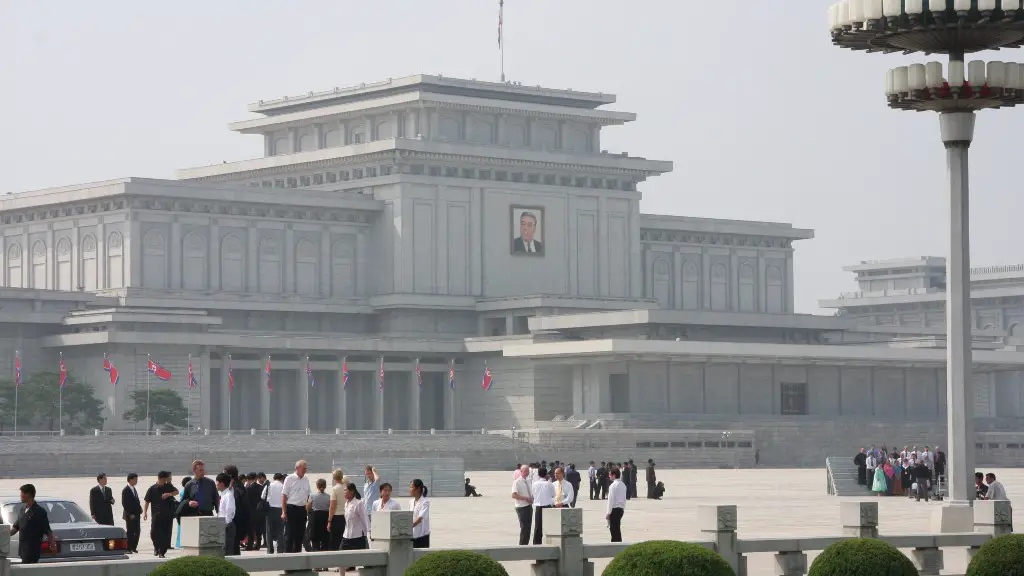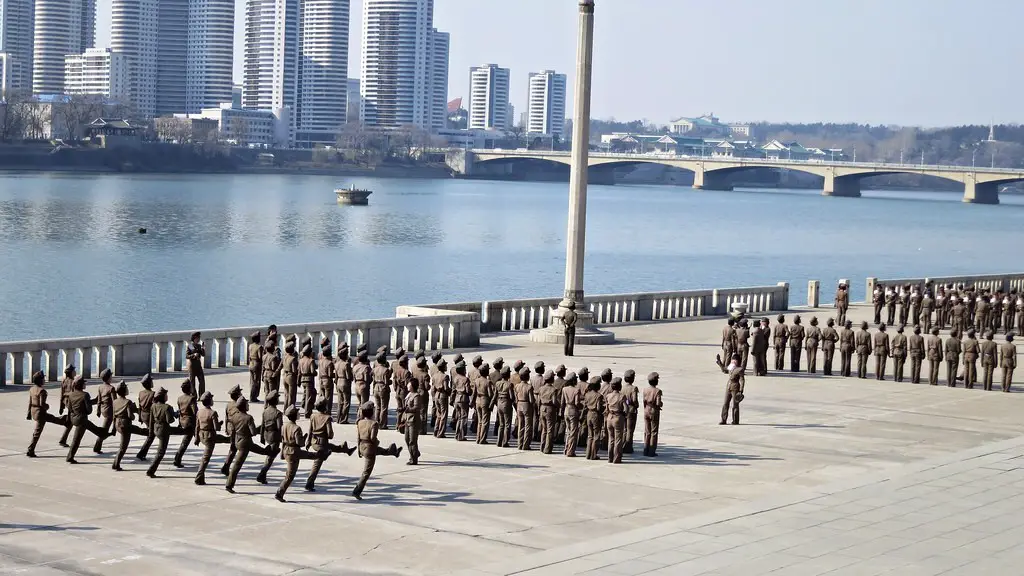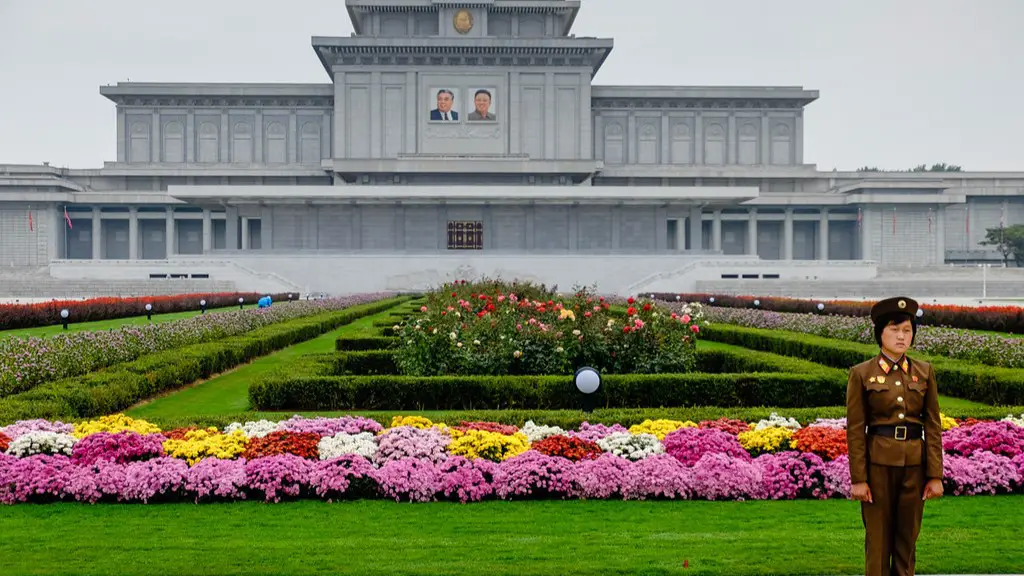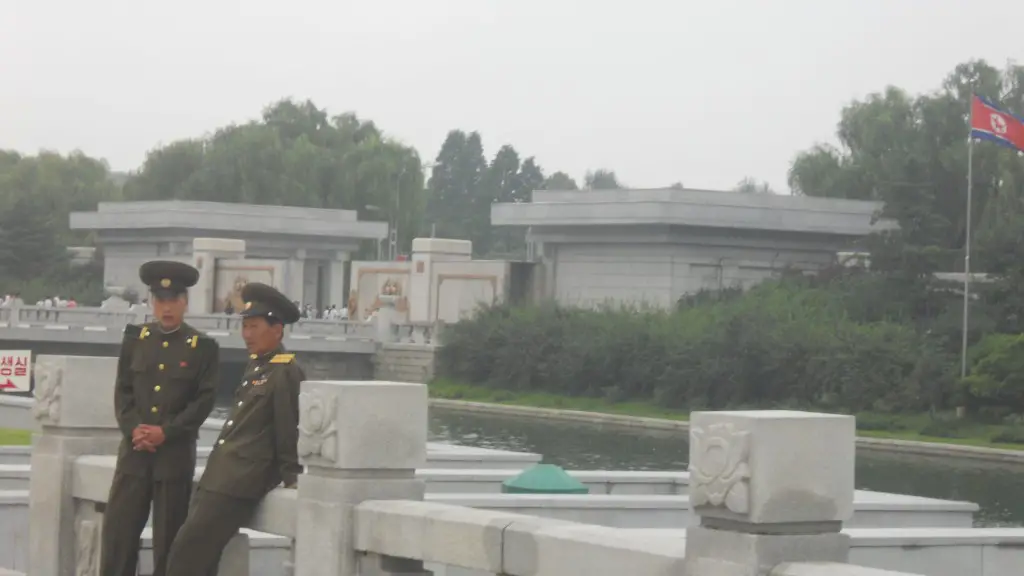History of US and North Korea
The relationship between the United States and North Korea has been marred by suspicion, mistrust and hostility since 1945, when the Soviet Union and the United States divided the Korean peninsula into two occupations. The United States enforced a southern occupation in response to the northern occupation being enforced by the Soviet Union. Since then, the two countries have been in a constant contentious state. After the Korean War, which ended in 1953, the two countries continued to be deadlocked in rivalry and ideological differences.
Throughout the Cold War, North Korea maintained an authoritarian, communist government. It was isolated from the world, with its focus still on Russia and China, while the United States had overwhelming power and influence around the world. North Korea was unable to keep up economically, or militarily, with its much bigger neighbor.
North Korean Missile & Nuclear Program
Detailed discussions in the 1990s regarding North Korea’s nuclear program led to high tensions between North Korea and the United States, as North Korea continuously stalled agreements despite warning from the US. In 2006, North Korea conducted its first nuclear test, a direct challenge to the US and the international community.
In 2017, the United Nations imposed strict sanctions on North Korea in response to its missile tests. The UN sent a warning to Pyongyang, making it clear that the global community viewed the country’s nuclear program as a threat to international peace and security. In 2018, North Korea set off its most powerful nuclear test to date, causing alarm among US officials.
Throughout the years, the United States has continued to step up its pressure on North Korea. The Trump administration put additional restrictions on North Korea and regularly publicizes the nation’s violations of international laws.
Reasons North Korea Is Mad at The United States
North Korea is mad at the United States primarily due to its long-standing policy of containing North Korea’s military and nuclear capabilities, which have only resulted in more tensions and fear. North Korea blames the United States for its isolation, poverty and the weak economy due to its lack of access to global markets. North Korea sees the US policy of sanctions as an attempt to undermine and destabilize the country.
In addition, North Korea is angered by US military exercises near the Korean Peninsula and US alliances with South Korea and Japan, two countries which North Korea sees as hostile. North Korea’s anger towards these activities has led to periodic threats of war against the United States, which further increases North Korea’s anger and mistrust.
North Korean Media Narrative
North Korean media, which is closely controlled by the state, presents a consistent and hostile narrative towards the United States, stimulating anti-American sentiment among North Koreans. North Korean media often portray the US as a bullying nation that wants to harm North Korea and its people, and regularly refer to the US as a “hostile enemy” or “imperialistic power.”
This narrative is supported by the government, which uses its media to further its own political objectives. By encouraging hatred of the US, the government can use it as a tool for internal control, to keep the population’s attention focused on the US instead of pressing domestic issues.
US Reactions and Responses
The United States has responded to North Korea’s anger and hostile rhetoric by imposing sanctions and increased pressure. In addition, the US has been involved in a long-term diplomatic effort to peacefully denuclearize the Korean Peninsula. This has involved extensive diplomacy and negotiations, such as the six-party talks, in an attempt to reach a peaceful settlement.
However, the success of these efforts has been limited, as both sides have yet to reach a comprehensive agreement. Despite the US’ diplomatic initiatives, North Korea remains committed to its nuclear weapons program and appears unwilling to negotiate in good faith.
Humanitarian Impact
In addition to the political tensions between the US and North Korea, the continued conflict has led to increased suffering for the people of North Korea. The conflict has had a damaging impact on the economy, and the people of North Korea have had to endure years of extreme poverty and suffering.
The people of North Korea have faced severe shortages of food and medicines, as sanctions from the international community and domestic mismanagement have limited the country’s access to essential resources. The situation has been further exacerbated by natural disasters such as floods and droughts.
In response, the international community, including the US, has provided humanitarian aid to North Korea. However, monitoring and verifying the aid has been difficult due to the secretive nature of the North Korean government, and the fact that much of the aid is diverted to the military.
Effects of the Conflict on the Region
The continued tensions between North Korea and the United States have had a destabilizing effect on the region. North Korea’s nuclear program has caused concern among its neighbors, who fear the potential repercussions of a military conflict. In addition, US sanctions and security policies have had a negative impact on trade and investment in the region.
The US’s increasing military presence in the region has also had a destabilizing effect. US military exercises and deployments have been seen as provocative by North Korea and its allies, leading to further distrust and mistrust.
Global Response
The ongoing tensions between the US and North Korea have led to numerous calls from the international community for de-escalation and a reduction in hostilities. In response, the United Nations Security Council has implemented several rounds of targeted sanctions on North Korea in an attempt to force the country to give up its nuclear weapons.
The international community has also been involved in negotiations and talks between North Korea and the US in an attempt to resolve the dispute peacefully. This has included the UN-backed six-party talks and the Singapore summit between the US and North Korea.
Public Opinion
Public opinion in both the US and North Korea has become increasingly polarized over the years. Public support in North Korea for the government’s approach has grown steadily, in large part due to state media portraying the US as an aggressor. In the US, opinion has been divided, with a majority of people advocating for a more diplomatic approach.
In spite of the increasing polarization, there are still a few voices in both countries insisting on a peaceful resolution. There is still a small minority in the US that advocates for dialogue and engagement with North Korea, and similar voices can be heard in North Korea advocating for less confrontational approaches.





